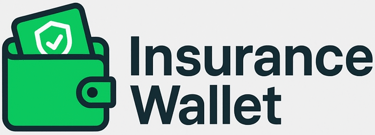What is Comprehensive Motor Insurance Coverage?
A Comprehensive Policy is often called a “Package Policy” because it combines:
Third-Party Liability Cover (mandatory by law)
Own Damage Cover (protection for the insured’s own vehicle)
This makes it the most complete form of motor insurance available for cars, bikes, and commercial vehicles.
🔹 What It Covers
Third-Party Liabilities (as required by the Motor Vehicles Act):
Death or injury to third parties (other people).
Damage to third-party property (limited to ₹7.5 lakh for private cars/bikes).
Liability towards paid drivers, conductors, or employees (under EC Act).
Own Damage (OD):
Protection for your own vehicle against:Accidents & Collisions – Damage from road mishaps.
Theft or Burglary – Full or partial theft of the vehicle.
Fire & Explosions – Including self-ignition.
Natural Calamities – Flood, earthquake, cyclone, landslide, storm.
Man-made Risks – Riots, strikes, terrorism.
Transit Damage – While in road/rail/air/inland water transport.
Personal Accident (PA) Cover:
Compulsory for owner-driver.
Optional for passengers and paid drivers.
Add-On Covers (Optional, Extra Premium):
Zero Depreciation
Return to Invoice
NCB Protection
Roadside Assistance
Engine Protect
❌ What It Does Not Cover
Driving without a valid license.
Drunk driving / under influence of drugs.
Normal wear & tear, mechanical breakdown.
Usage beyond policy scope (e.g., private car used as taxi).
Damage outside geographical limits (India, unless extended).
💡 Sales Pitch Angle
👉 For Agents:
Start by saying: “Third-party insurance is just the legal minimum. But comprehensive insurance protects you, your vehicle, and others.”
Use real examples:
“If your car is stolen tomorrow, only a comprehensive cover will pay for it.”
“A flood can destroy an engine costing ₹2 lakh—comprehensive insurance takes care of it.”
✅ In Short:
A Comprehensive Policy = Legal Compliance (TP) + Financial Security (OD) + Peace of Mind (Add-ons).
